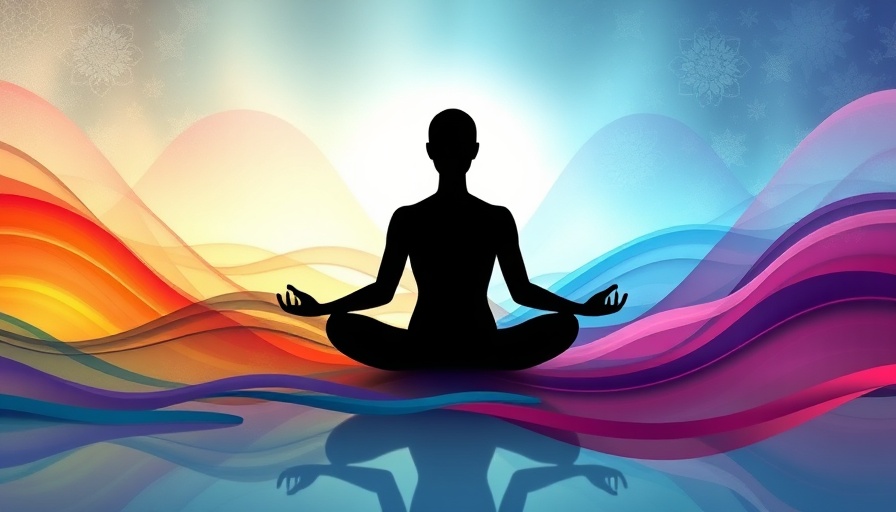
Finding Calm in Chaos: The Power of Guided Meditation
During these uncertain times, many people feel overwhelmed, prompting them to disengage from the news and social interactions. While this instinct is understandable, completely shutting out the world is not the only solution. Instead, embracing mindfulness and meditation can provide a grounded way of interacting with our thoughts and emotions while navigating these challenges.
Meditation is not merely a technique for relaxation; it’s an essential tool for mental well-being and stress management. As outlined by mindfulness teacher Georgina Miranda, maintaining an inner sense of peace is crucial, especially in chaotic environments. Guided meditations offer structured paths to foster this tranquility during tough times.
10 Guided Meditations for Tough Times
The following meditations are curated to help ease stress, promote rest, and cultivate a sense of presence amidst the noise of daily life. Each practice can be adjusted over time, depending on individual needs.
Step 1: Breathe and Get Space
- A 10-Minute Meditation for Deep Relaxation: Led by Jenée Johnson, this session focuses on liberating the mind to allow the body to release tension.
- Slow Your Breath and Your Thoughts: This 12-minute meditation guides participants to observe their breath, enabling them to witness the wandering mind without judgment.
- Body Scan Meditation: Kelly Boys leads a 12-minute session designed to help participants let go of stress stored in their bodies, facilitating restful sleep.
Step 2: Feel and Explore
- Meditation for Grief and Loss: Judy Lief invites participants to explore their emotional landscapes, helping them transition from heartbreak to healing.
- Body Scan for Self-Compassion: Melli O’Brien’s meditation nurtures self-acceptance and presence, transforming the way we approach stressors in life.
The Science Behind Meditation
Understanding the physical and mental implications of stress is crucial. Studies have consistently shown that meditation is an effective stress-management tool, with research suggesting that regular practice leads to changes in brain structure that improve stress responses.
The Mayo Clinic emphasizes the numerous health benefits of meditation. In fact, meditation can decrease stress-related health issues, improve emotional well-being, and enhance overall life satisfaction. The more we practice mindfulness, the more adept we become at managing stress levels.
Practical Insights for Busy Lives
Many individuals juggle work, family obligations, and personal commitments, leading to feelings of being overwhelmed. Incorporating brief moments of meditation throughout the day can create impactful benefits. For instance, taking a moment to breathe deeply during a stressful meeting can reset your mental state.
Tools like the Headspace app have emerged as popular resources for those new to meditation. Users can access courses specifically designed to combat stress, offering a blend of guided practices and relaxation techniques that fit easily into daily routines.
Common Misconceptions About Meditation
A prevalent myth is that meditation requires extensive training or time commitment. In reality, even small doses of mindfulness can make a significant impact. Regular practitioners find that even five to ten minutes of meditation can cultivate a fresh perspective on adversity, encouraging resilience during tough times.
Another misconception is that meditation forces individuals to clear their minds completely. In truth, meditation emphasizes observing and accepting thoughts as they arise, ultimately fostering a healthier relationship with our mental processes.
Actionable Steps to Begin Your Meditation Journey
Starting a meditation practice does not have to be daunting. Here are some simple steps to incorporate mindfulness into your life:
- Begin with Short Sessions: When starting, commit to just 5-10 minutes a day. As comfort grows with the practice, extend the duration.
- Be Consistent: Try to meditate at the same time each day to establish routine and reinforce practice.
- Explore Different Techniques: Experiment with various methods, including guided meditations, breath awareness, or body scans, based on what resonates most.
Conclusion: Cultivating Resilience Through Mindfulness
In a world that can often feel chaotic and stressful, guided meditations provide a refuge to reclaim peace and clarity. Remember that retreating into mindfulness not only enhances personal well-being but also equips you to engage more meaningfully with the world around you.
Start your journey with these meditation resources today, and embrace the many benefits they bring to your life.
 Add Row
Add Row  Add
Add 




Write A Comment